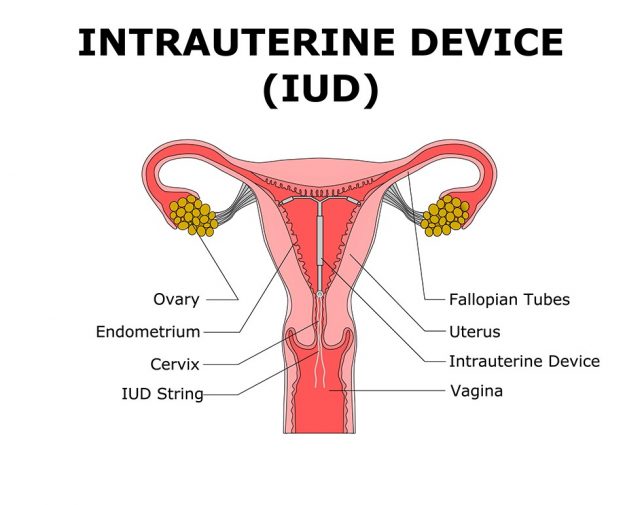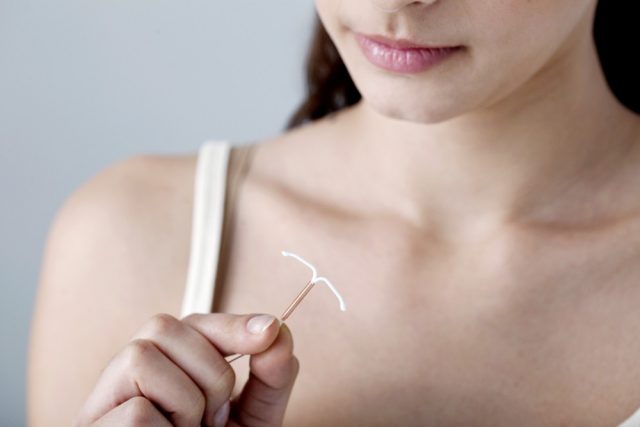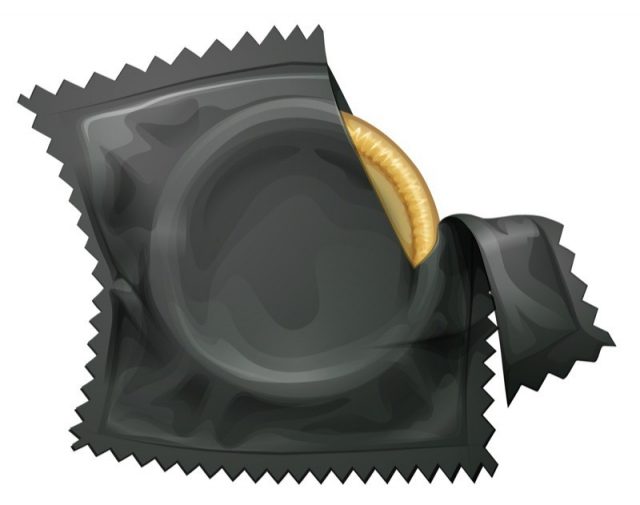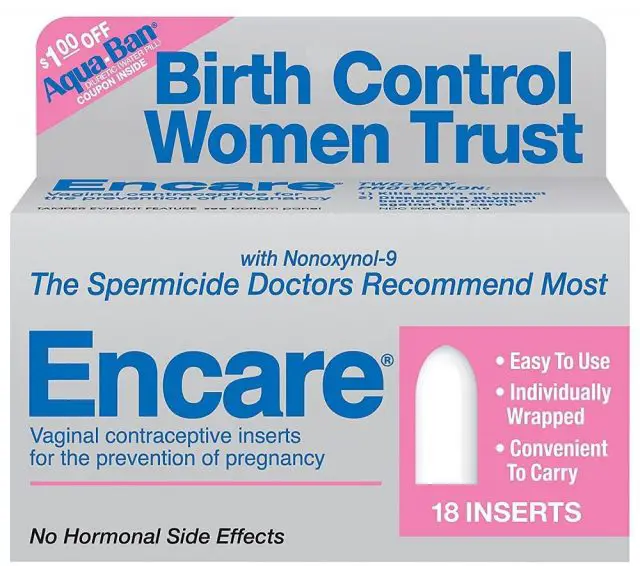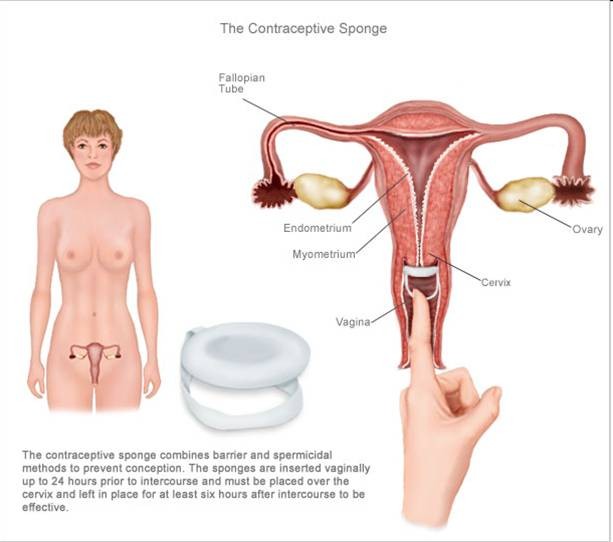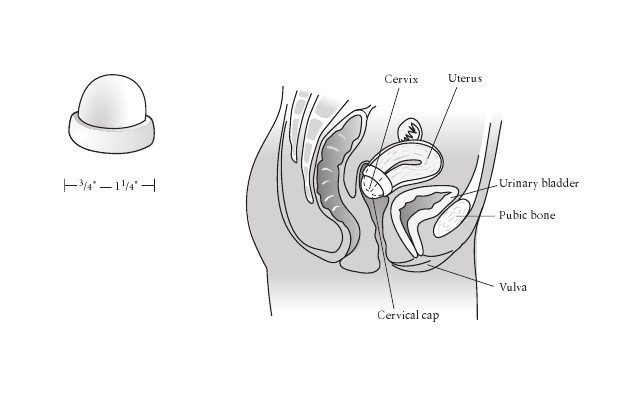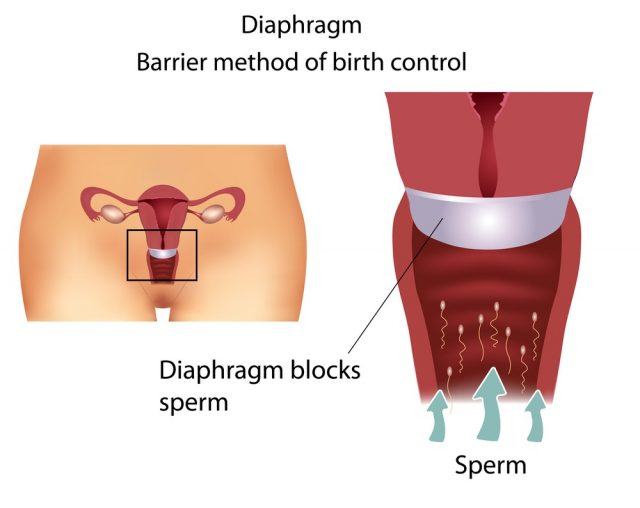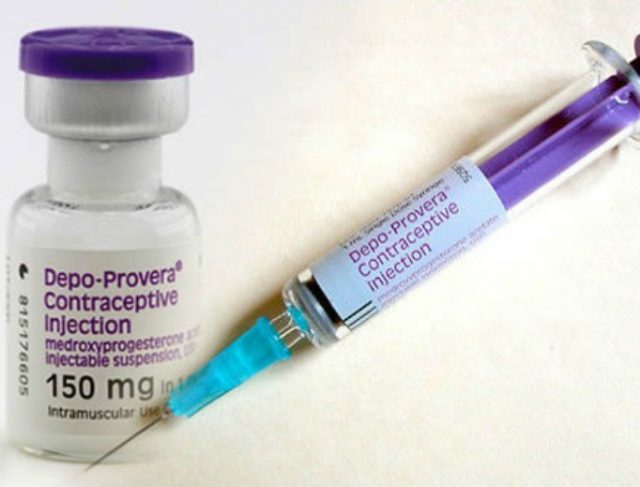Non Hormonal Birth Control
People use non-hormonal birth control methods when they don’t want to get pregnant and continue having a healthy sex life. Non-hormonal birth control methods do not have any potential risks or side-effects.
It is best to consider using non-hormonal birth control options if:
- Ongoing birth control methods are not needed as you have intercourse quite infrequently.
- You don’t wish to change the natural cycle of your body due to religious or other boundations. In some cultures, using such contraceptives are considered disrespectful to God and are avoided by many men and women.
- Your health insurance no longer covers hormonal birth control options. So you can opt for the non-hormonal ones especially which are very cheap like the condoms.
- You want to be double sure in addition to hormonal birth control and use both the options. Sometimes, due to irregular dosage of hormonal pills, one might get pregnant.
Non-hormonal birth control options
Below listed are some non-hormonal birth control options which are quite effective in preventing pregnancy:
- Copper IUD:
 IUD is the short form for Intrauterine device. An IUD is placed in the uterus of a female by the doctor. They are of two types – hormonal and non-hormonal. They both prevent pregnancy in a different way. The non-hormonal birth control IUD one contains copper which when inserted into the uterus releases copper inside. This copper is toxic for the sperm and hence fertilization does not occur. They are considered 99% effective in preventing pregnancy.
IUD is the short form for Intrauterine device. An IUD is placed in the uterus of a female by the doctor. They are of two types – hormonal and non-hormonal. They both prevent pregnancy in a different way. The non-hormonal birth control IUD one contains copper which when inserted into the uterus releases copper inside. This copper is toxic for the sperm and hence fertilization does not occur. They are considered 99% effective in preventing pregnancy.  It has a validity of 10 years but one can remove it anytime one wishes. Immediately after its removal, the person becomes fertile normally again. This procedure is costly so make sure that your insurance covers it completely. Some women experience side effects like heavy menstrual bleeding and cramps which reduce over time as the body gets accustomed to it. Sometimes, the IUDs get dislocated or expelled from the uterus and one has to replace them. But this happens only if the woman is less than 20 years of age, has never given birth before or has had them placed immediately after childbirth.
It has a validity of 10 years but one can remove it anytime one wishes. Immediately after its removal, the person becomes fertile normally again. This procedure is costly so make sure that your insurance covers it completely. Some women experience side effects like heavy menstrual bleeding and cramps which reduce over time as the body gets accustomed to it. Sometimes, the IUDs get dislocated or expelled from the uterus and one has to replace them. But this happens only if the woman is less than 20 years of age, has never given birth before or has had them placed immediately after childbirth. - Barrier Methods:
 Barrier methods are use of devices which prevent the sperm from reaching the egg physically. One example of barrier birth control methods are condoms. Condoms are most commonly used barrier methods. There are others like sponges, cervical caps, diaphragms and spermicides too. These barrier methods are available locally at any druggists or even online. These methods are not always 100% effective owing to chances of human error. But many still opt for these if they do not want anything to be inserted into their bodies or do not wish to use any hormones.
Barrier methods are use of devices which prevent the sperm from reaching the egg physically. One example of barrier birth control methods are condoms. Condoms are most commonly used barrier methods. There are others like sponges, cervical caps, diaphragms and spermicides too. These barrier methods are available locally at any druggists or even online. These methods are not always 100% effective owing to chances of human error. But many still opt for these if they do not want anything to be inserted into their bodies or do not wish to use any hormones. - Condoms:
 Condoms not only prevent against pregnancy but also protect against sexually transmitted infections and diseases. They are very popular and widely available. They don’t require prescription and almost everyone is educated about their benefits via media today. They also come very cheap and sometimes are even available freely. One needs to roll the male condom on the penis and this keeps the sperm inside the condom during sex.They come in a variety of colors, flavors and materials including latex and non-latex ones. They are effective 98% times. Remaining 2 % is due to human error of putting them after skin to skin contact or the possibility of breaking or slipping off of the condoms during intercourse. Female condoms can be fitted inside the vagina and they prevent the sperm from entering the uterus or even reaching the cervix. They are made from nitrile or polyurethane material and these materials are quite harmless especially if one has an allergy to latex. But they are a little more costly and less widely available.
Condoms not only prevent against pregnancy but also protect against sexually transmitted infections and diseases. They are very popular and widely available. They don’t require prescription and almost everyone is educated about their benefits via media today. They also come very cheap and sometimes are even available freely. One needs to roll the male condom on the penis and this keeps the sperm inside the condom during sex.They come in a variety of colors, flavors and materials including latex and non-latex ones. They are effective 98% times. Remaining 2 % is due to human error of putting them after skin to skin contact or the possibility of breaking or slipping off of the condoms during intercourse. Female condoms can be fitted inside the vagina and they prevent the sperm from entering the uterus or even reaching the cervix. They are made from nitrile or polyurethane material and these materials are quite harmless especially if one has an allergy to latex. But they are a little more costly and less widely available. - Spermicide:
 This is a chemical that has the capability of killing the sperm. It is available in the form of a gel, foam or cream. Some popular brands are Encare Vaginal Contraceptive Inserts, Conceptrol Contraceptive Gel and Gynol II Contraceptive Gel.They do not have a very high success rate and fail 28% of the time. They are best used in combination with sponges, condoms and other barrier methods. They are a little costlier than condoms. There are hardly any side effects from using spermicide although some cases of skin irritation have been recorded so far. They contain nonxynol – 9 which does sometimes change the skin around the genitals causing an irritation and in extreme cases making you susceptible to HIV. Any itching, redness or burning should be checked with the doctor immediately.
This is a chemical that has the capability of killing the sperm. It is available in the form of a gel, foam or cream. Some popular brands are Encare Vaginal Contraceptive Inserts, Conceptrol Contraceptive Gel and Gynol II Contraceptive Gel.They do not have a very high success rate and fail 28% of the time. They are best used in combination with sponges, condoms and other barrier methods. They are a little costlier than condoms. There are hardly any side effects from using spermicide although some cases of skin irritation have been recorded so far. They contain nonxynol – 9 which does sometimes change the skin around the genitals causing an irritation and in extreme cases making you susceptible to HIV. Any itching, redness or burning should be checked with the doctor immediately. - Sponge:
 Sponge is structured from plastic foam material. One needs to insert it into the vagina before sexual intercourse as it acts like a barrier between the cervix and sperm. It is a single-use option meant to be used with spermicide to kill the sperm. It can be left inside the vagina for up to 24 hours and have repeated intercourses for multiple times. But one needs to remember to remove it only after 6 hours of the last sexual intercourse. Quite effective most of the times, it has a success rate of 91%. They are quite cheap and sometimes even available for free at local clinics. One should refrain from using a sponge is she is allergic to polyurethane or spermicide.
Sponge is structured from plastic foam material. One needs to insert it into the vagina before sexual intercourse as it acts like a barrier between the cervix and sperm. It is a single-use option meant to be used with spermicide to kill the sperm. It can be left inside the vagina for up to 24 hours and have repeated intercourses for multiple times. But one needs to remember to remove it only after 6 hours of the last sexual intercourse. Quite effective most of the times, it has a success rate of 91%. They are quite cheap and sometimes even available for free at local clinics. One should refrain from using a sponge is she is allergic to polyurethane or spermicide. - Cervical cap:
 This product is a silicone plug which is reusable. It has to be inserted into the vagina 6 hours before sexual intercourse. This is available only with prescription and prevents the sperm from entering into the uterus. It can be left in the body for 48 hours. This method is also more effective when used with spermicide. Check the cap for any possible holes or weak points which may lead to leakage. It is beneficial for women who have not given birth before. It is quite costly at about $289.
This product is a silicone plug which is reusable. It has to be inserted into the vagina 6 hours before sexual intercourse. This is available only with prescription and prevents the sperm from entering into the uterus. It can be left in the body for 48 hours. This method is also more effective when used with spermicide. Check the cap for any possible holes or weak points which may lead to leakage. It is beneficial for women who have not given birth before. It is quite costly at about $289. - Diaphragm:
 A diaphragm looks like a dome and it is made of silicon. It is reusable and has to be inserted into the vagina before sexual intercourse. It prevents the sperm from entering the uterus. One should leave it for 6 hours after sexual intercourse but remove it before 24 hours. It is quite effective at about 94% in preventing pregnancy. One can also fill the diaphragm with spermicide for added protection. One should also check it for holes and other weaker areas before using. It costs about 90 USD. One should be extremely careful of the hygiene factor in diaphragms as many women using one get yeast infections.
A diaphragm looks like a dome and it is made of silicon. It is reusable and has to be inserted into the vagina before sexual intercourse. It prevents the sperm from entering the uterus. One should leave it for 6 hours after sexual intercourse but remove it before 24 hours. It is quite effective at about 94% in preventing pregnancy. One can also fill the diaphragm with spermicide for added protection. One should also check it for holes and other weaker areas before using. It costs about 90 USD. One should be extremely careful of the hygiene factor in diaphragms as many women using one get yeast infections. - Natural Ways of Family Planning:
 Natural family planning can be done if your periods are very regular and you are in complete sync with your body. This method is popularly known as the rhythm awareness method or the fertility awareness method. A woman ovulates between 7 to 14 days after her first period and if she has sexual intercourse while she is ovulating, she can become pregnant. The simplest natural way of avoiding pregnancy is to avoid sex while ovulating. Ovulation comes mostly in the middle of a 26 or 32 days cycle.
Natural family planning can be done if your periods are very regular and you are in complete sync with your body. This method is popularly known as the rhythm awareness method or the fertility awareness method. A woman ovulates between 7 to 14 days after her first period and if she has sexual intercourse while she is ovulating, she can become pregnant. The simplest natural way of avoiding pregnancy is to avoid sex while ovulating. Ovulation comes mostly in the middle of a 26 or 32 days cycle.
A lot of cervical mucus is also discharged in many women when they are in the most fertile time of their cycles.Those who want to conceive should consider this period for intercourse. There is a considerable spike in temperature during this period too. A special thermometer can track your most fertile period by results obtained from the vagina. Some fertility apps may also help women track their cycles. Also refraining from releasing inside the vagina is a commonly used natural way of family planning which prevents the women from getting pregnant. However, the success rate of this option is very very less due to human negligence.
The above mentioned are the available types of non-hormonal birth control.
How do you know which is the best non-hormonal birth control for you
While this is a matter of purely personal choice, one can also consult a doctor who can guide you to the most effective non-hormonal birth control for you. One may also decide on the basis of religion, culture and health history. The doctor may check your history for possible reactions to medicines and guide you accordingly. One can even check with their insurance agents to know which type of birth control is covered in their schemes.
Non-hormonal birth control shot
An injection called the depo shot or the Depo-Provera can be got every 3 months from your doctor or nurse. It is very safe, private and convenient method which has a high success rate. The shot contains progestin which prevents ovulation thereby preventing pregnancy.
Pregnancy cannot happen in the absence of an egg in the fallopian tube. The shot also makes the cervical mucus thicker so that the sperm cannot get through. So when the sperm and egg cannot meet, pregnancy cannot happen.
Though the shot is quite effective in preventing pregnancy, it cannot protect the person from sexually transmitted diseases. Condoms are considered the best if one wants to prevent pregnancy as well as the spread of STDs. The shot works best if got regularly every 3 months.
The shot if taken within the first 7 days of periods, then the woman is safe from pregnancy immediately. But if there is a delay in taking it, then its advisable to use some other birth control method for the first week after the shot. If you are late in taking your next shot, then your nurse or doctor might advise you to take a pregnancy test before taking the shot. The shot has a high success rate at about 99%. If by any circumstances, the woman is late is getting her shots, then its advised to use other forms of birth control till she gets her shot and also for the first week after that.
Non-hormonal birth control methods vs hormonal birth control
Hormonal methods pros:
- They are very reliable if used correctly and on time. They have a high success rate of about 99%.
- They also prevent cancer according to some studies. Birth control pills reduce the risk of getting thyroid or ovarian cancer.
- Hormonal birth control options lessen androgen levels in the body thereby clearing up the acne in the body.
- They are the cheapest forms of birth control and available everywhere.
Hormonal methods cons:
- Some women feel that the pill makes the post menstrual symptoms quite worse like emotional symptoms of mood swings, depression and anger.
- The hormones present in the pill could make some women gain weight.
- If you are a smoker and use hormonal birth control pills, then your chance of getting blood clots increases.
- Women taking these pills often complain about decreased libido and decreased sex drive.
- Take these pills can interfere with the proper thyroid function of the body as they increase thyroglobulin which is a protein essential for the binding of the thyroid hormone.
- In some studies, researchers feel that taking birth control pills might lead breast cancer in menopausal women.
- They also at times result in the depletion of the vitamin B in the body essential for the proper functioning of the neuroendocrine system.
Non-hormonal methods pros:
- They are very versatile as one can combine more than one method of non-hormonal birth control till you short list on any one you are comfortable with.
- They are very convenient. They are very fast and easy to use.
- Switching from a hormonal method to a non-hormonal method gives the body some time to adjust to normal periods. This is best done when you are trying to get pregnant. The body needs some transition time before the woman can get pregnant. A non-hormonal method should be used during this phase.
Non hormonal method cons:
- They are not very reliable leaving the IUD. None of the others have success rates greater than 90%.
- One has to have a sexual intercourse within a certain time frame on using non-hormonal birth control methods as they lack spontaneity.
- Many men and women have allergic reactions to the latex or the chemicals in spermicides. Yeast infections also occur a lot in women using diaphragms.


